
Best Retail Crypto Wallets (Mobile/Web) 2025
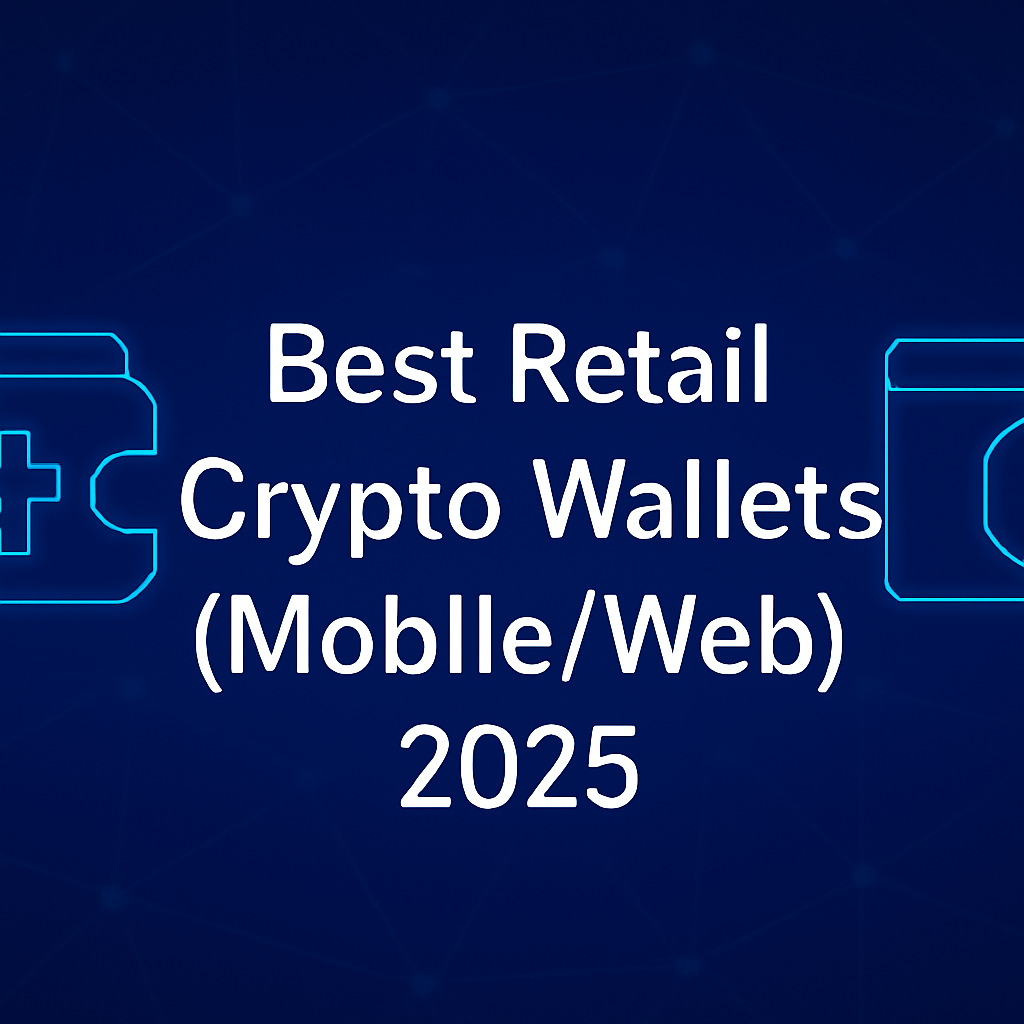
Why Retail Crypto Wallets (Mobile/Web) Matter in September 2025
Retail-friendly mobile and web wallets make crypto usable—on your phone and in your browser—without relying on a centralized custodian. This guide ranks the best retail crypto wallets for 2025 so you can safely store, send, swap, and explore Web3. A crypto wallet is software that holds your keys and lets you sign transactions; self-custody means you control those keys.
We focus on practical needs: everyday buys, swaps, NFT viewing, multi-chain coverage, and clear fees. Expect mainstream names alongside rising multichain players. Secondary considerations include mobile crypto wallet UX, web3 wallet dapp access, and self-custody wallet security. If you’re new, start with a wallet that offers simple onboarding and robust recovery. If you’re advanced, look for pre-transaction risk checks, multichain swaps, and hardware support.
How We Picked (Methodology & Scoring)
- Liquidity (30%) – depth and routing quality for in-wallet swaps/bridging; reliable asset movement.
- Security (25%) – self-custody design, audits, MPC/multisig options, hardware compatibility, recovery.
- Coverage (15%) – number of supported chains/tokens and NFT handling.
- Costs (15%) – transparent swap/bridge fees and gas handling.
- UX (10%) – onboarding, performance, transaction clarity, portfolio/NFT views.
- Support (5%) – docs, help centers, in-app support channels.
Top 10 Retail Crypto Wallets (Mobile/Web) in September 2025
1. MetaMask — Best for EVM & massive dapp coverage
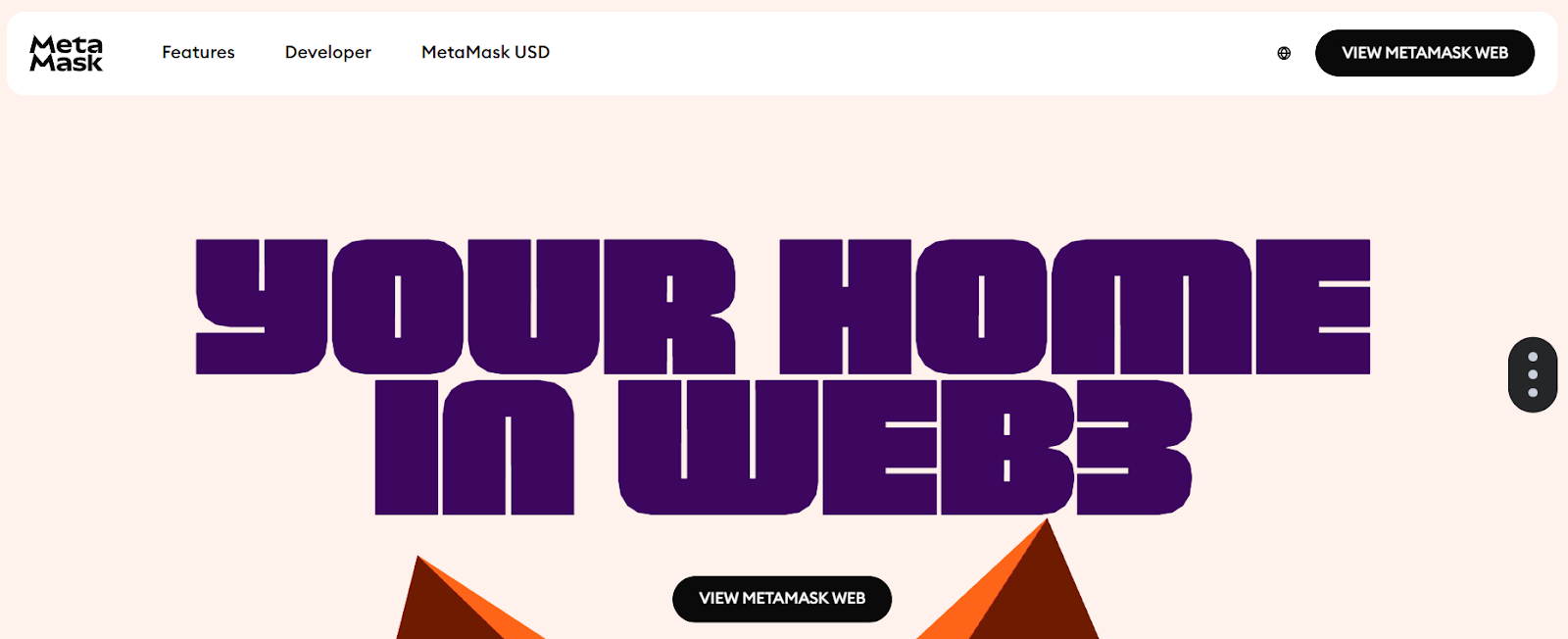
Why Use It: The most ubiquitous Web3 wallet, MetaMask balances power and familiarity. It’s everywhere dapps are, with mobile + browser extension, good network support, and strong swap/bridge routing in-app. Smart Transactions and built-in security alerts improve reliability for everyday users.
Best For: EVM users, NFT collectors, L2 explorers, DeFi regulars.
Notable Features: Smart Transactions; Swaps/Bridge aggregator; MetaMask Learn; mobile + major browsers.
Consider If: You want explicit fee transparency—MetaMask Swaps includes a 0.875% service fee (plus network gas).
Alternatives: Trust Wallet, OKX Wallet.
Regions: Global.
Fees Notes: Network fees; MetaMask Swaps service fee 0.875%.
2. Trust Wallet — Best all-rounder for mobile + extension
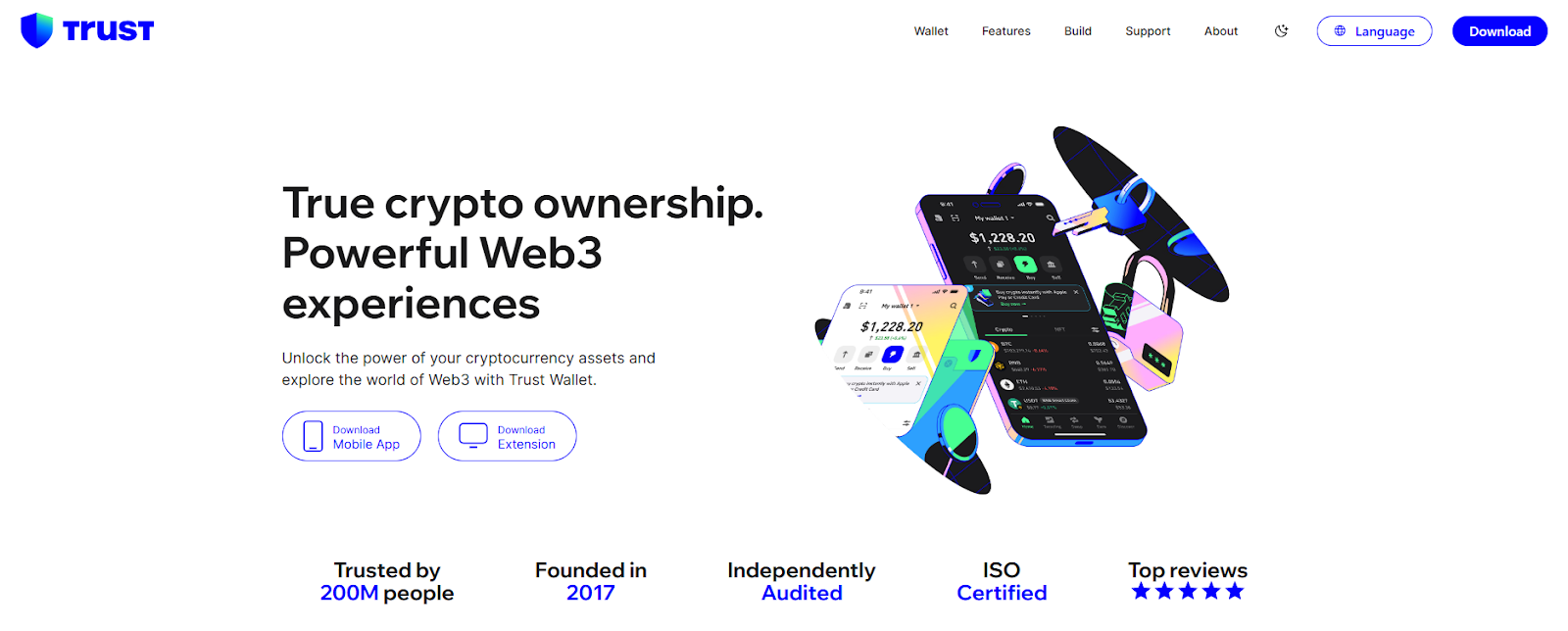
Why Use It: Trust Wallet offers a simple, one-stop experience: buy, send, swap, stake, and manage NFTs across many chains. Its mobile app is fast, and the extension integrates with popular EVM and non-EVM chains.
Best For: Beginners who want breadth; multichain NFT holders; mobile-first users.
Notable Features: Built-in DApp browser; simplified swaps with gas optimization; staking flows.
Consider If: You want no added swap fee—Trust says it doesn’t charge extra on swaps (you still pay network/third-party fees).
Alternatives: MetaMask, Crypto.com Onchain.
Regions: Global.
Fees Notes: Network/partner fees apply; Trust states no added in-app swap fee.
3. Base app (formerly Coinbase Wallet) — Best for Coinbase ecosystem & onchain social
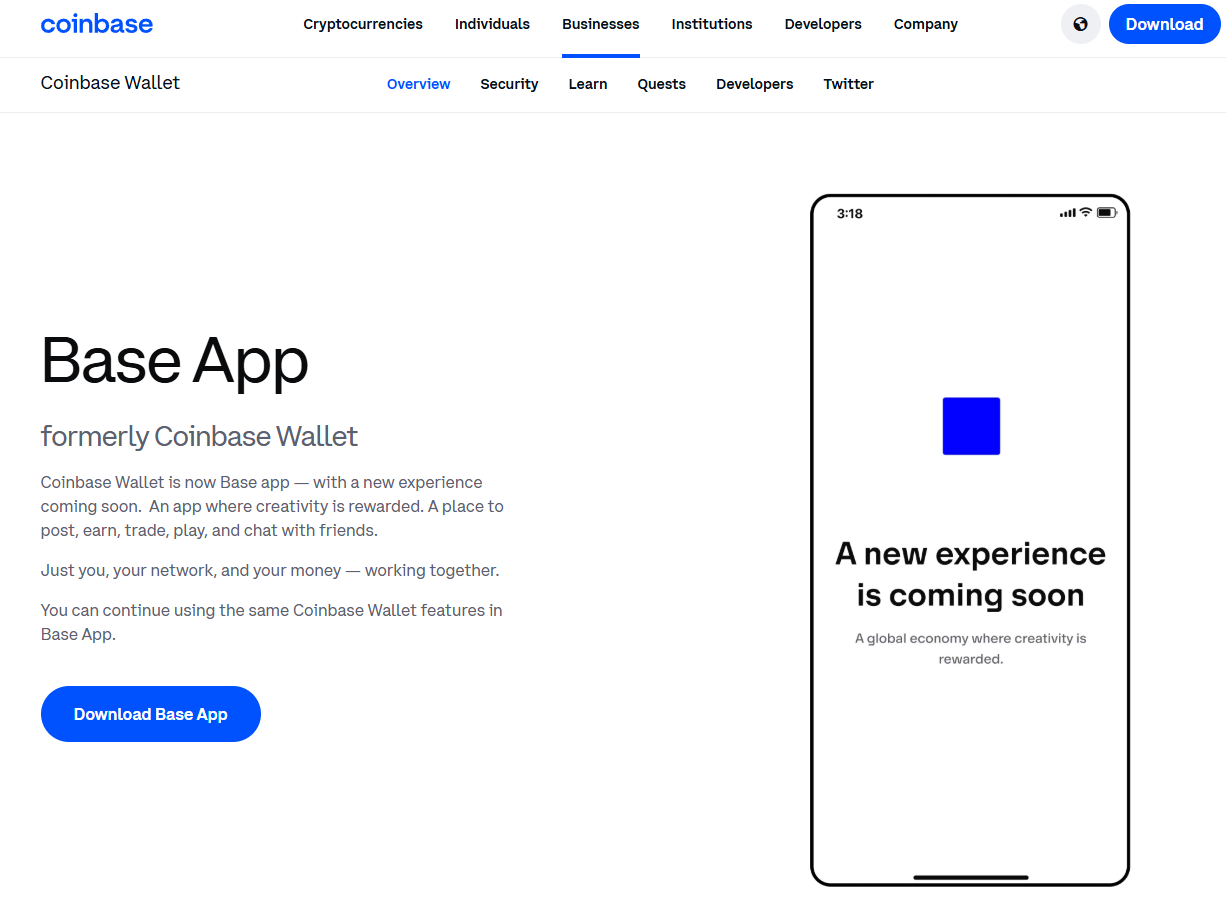
Why Use It: Rebranded as the Base app, the former Coinbase Wallet keeps familiar self-custody features while embracing Base/L2 culture and onchain social/activity. If you already use Coinbase products, onboarding is straightforward while staying self-custodial.
Best For: Coinbase users going self-custody; Base/L2 explorers; web3 social/NFT dabblers.
Notable Features: Self-custody; trading, posting, playing; continuity for Coinbase Wallet users.
Consider If: You prefer chain-agnostic advanced tooling—others may offer deeper multichain utilities today.
Alternatives: MetaMask, Rainbow.
Regions: Global.
Fees Notes: Network fees; third-party swap/partner fees where used.
4. Phantom — Best for Solana + solid multichain UX
Why Use It: Phantom started Solana-first and has grown into a polished multichain wallet (Solana, Ethereum, and more). The interface is clean, with strong NFT views and transaction clarity—great for newcomers to Solana and cross-chain dabblers.
Best For: Solana users, NFT traders, multichain retail.
Notable Features: In-wallet swaps and bridging; gasless swaps on Solana (select cases); robust notifications/history.
Consider If: You want the lowest possible swap fees—Phantom lists 0.85% on select pairs, with separate gas/bridge fees.
Alternatives: OKX Wallet, Trust Wallet.
Regions: Global.
Fees Notes: Network fees; Phantom fee 0.85% on select swaps; gasless-swap fee rules apply on Solana.
5. OKX Wallet — Best for power users who want DEX depth
Why Use It: OKX Wallet (extension + mobile) plugs you into OKX’s DEX aggregator, NFT marketplace, and DeFi. It offers multiple swap modes and solid routing—useful when chasing best execution across chains.
Best For: DeFi users seeking liquidity routing; cross-chain swappers; NFT traders.
Notable Features: Multi-mode swaps; DEX aggregator; marketplace; Earn/Discover sections.
Consider If: You need crystal-clear fee schedules—OKX lists DEX interface fee tiers up to 0.85% depending on pair groups.
Alternatives: MetaMask, Bitget Wallet.
Regions: Global (wallet).
Fees Notes: Network fees; OKX DEX interface fee 0–0.85% by pair category.
6. Exodus — Best for design & easy portfolio views
Why Use It: Exodus is a long-standing, self-custodial wallet with a beautifully designed UI across desktop and mobile. Portfolio tracking and NFT galleries are polished, and its Web3 Wallet extends multichain support.
Best For: Newcomers who want clarity; portfolio-first users; multi-device use.
Notable Features: Multichain Web3 Wallet; thousands of swap pairs; simple buy/sell integrations.
Consider If: You want explicit fee details—Exodus doesn’t charge send/receive wallet fees, but network and partner fees still apply.
Alternatives: Crypto.com Onchain, ZenGo.
Regions: Global.
Fees Notes: No Exodus send/receive fees; network fees + third-party swap/fiat fees may apply.
7. Crypto.com Onchain — Best for simple multichain + Crypto.com tie-ins
Why Use It: Formerly known as the DeFi Wallet experience, Crypto.com Onchain is a self-custodial app with multichain support, in-wallet trading, and dapp access. It’s friendly for users who like Crypto.com’s ecosystem but want self-custody keys.
Best For: Mobile-first users; staking/earn explorers; Crypto.com ecosystem fans.
Notable Features: Local key encryption; import via 12/18/24-word phrases; multichain trading & dapp browser.
Consider If: You prefer a purely chain-agnostic wallet without exchange brand ties—others may feel “lighter.”
Alternatives: Trust Wallet, Exodus.
Regions: Global (feature availability can vary).
Fees Notes: Network/partner fees; self-custody (no custodial withdrawal fees).
8. ZenGo — Best for seed-phrase-free MPC security
Why Use It: ZenGo uses MPC to remove single-point seed phrase risks while keeping you in self-custody. That makes setup and recovery less nerve-wracking for new users, without buying hardware.
Best For: Beginners prioritizing recovery; mobile-only users; security-conscious travelers.
Notable Features: Seed-phrase-free MPC; in-app buy/swap; staking for select assets.
Consider If: You want classic seed control or advanced on-chain tooling—some power features are simpler by design.
Alternatives: Ledger Live (with hardware), Trust Wallet.
Regions: Global.
Fees Notes: Network fees; partner fees for buy/swap as quoted in-app.
9. Bitget Wallet — Best for active swappers & airdrop hunters
Why Use It: Formerly BitKeep, Bitget Wallet has grown into a large multichain wallet with DEX aggregation, dapp discovery, and memecoin-friendly flows. It’s geared for on-chain traders who want routing and token coverage across 65+ chains.
Best For: Power users in DeFi; memecoin and airdrop participants; cross-chain swaps.
Notable Features: Multichain DEX aggregator; dapp hub; iOS/Android + Chrome extension.
Consider If: You prefer a simpler, beginner-first interface—others above are more hand-holding.
Alternatives: OKX Wallet, MetaMask.
Regions: Global.
Fees Notes: Network fees; interface/partner fees vary by route/pair.
10. Ledger Live — Best for hardware-backed mobile/desktop security
Why Use It: Ledger Live is the companion app to Ledger hardware wallets; it brings buy, swap, stake, and portfolio monitoring into a single interface while private keys stay in the hardware device. Great for retail users who want a mobile/desktop app but insist on offline signing.
Best For: Long-term holders; high-value accounts; users planning to add hardware.
Notable Features: Buy/sell/swap/stake modules; multi-asset support; iOS/Android + desktop. Consider If: You don’t own hardware—full security benefits require a Ledger device.
Alternatives: ZenGo (MPC), Trezor Suite (with hardware).
Regions: Global.
Fees Notes: Network fees; partner fees for buy/swap as quoted in-app.
Decision Guide: Best By Use Case
- Regulated U.S. on-ramp familiarity: Base app (formerly Coinbase Wallet)
- Global multichain coverage + liquidity routing: OKX Wallet, Bitget Wallet
- Solana-first with smooth UX: Phantom
- EVM & dapp coverage: MetaMask
- Mobile simplicity (no seed phrase): ZenGo
- Polished design & portfolio tracking: Exodus
- Exchange-brand ecosystem, self-custody keys: Crypto.com Onchain
- Hardware-secured flows: Ledger Live
- Beginner-friendly all-rounder: Trust Wallet
How to Choose the Right Retail Crypto Wallet (Checklist)
- Confirm eligibility/availability in your region and app store.
- Verify chain coverage (BTC + your primary L1s/L2s).
- Decide on custody model: classic seed, MPC (no seed), or hardware-backed.
- Review fees: swap/bridge interface fees + network gas.
- Evaluate UX: transaction previews, risk alerts, NFT view, portfolio.
- Check support: searchable help center, in-app ticketing.
- Compliance fit: consider your tax/KYC needs with on-ramps.
- Red flags: fake download pages; apps that ask you to type your seed phrase into a website or pop-up.
Use Token Metrics With Any Wallet
- AI Ratings to screen assets by quality and momentum.
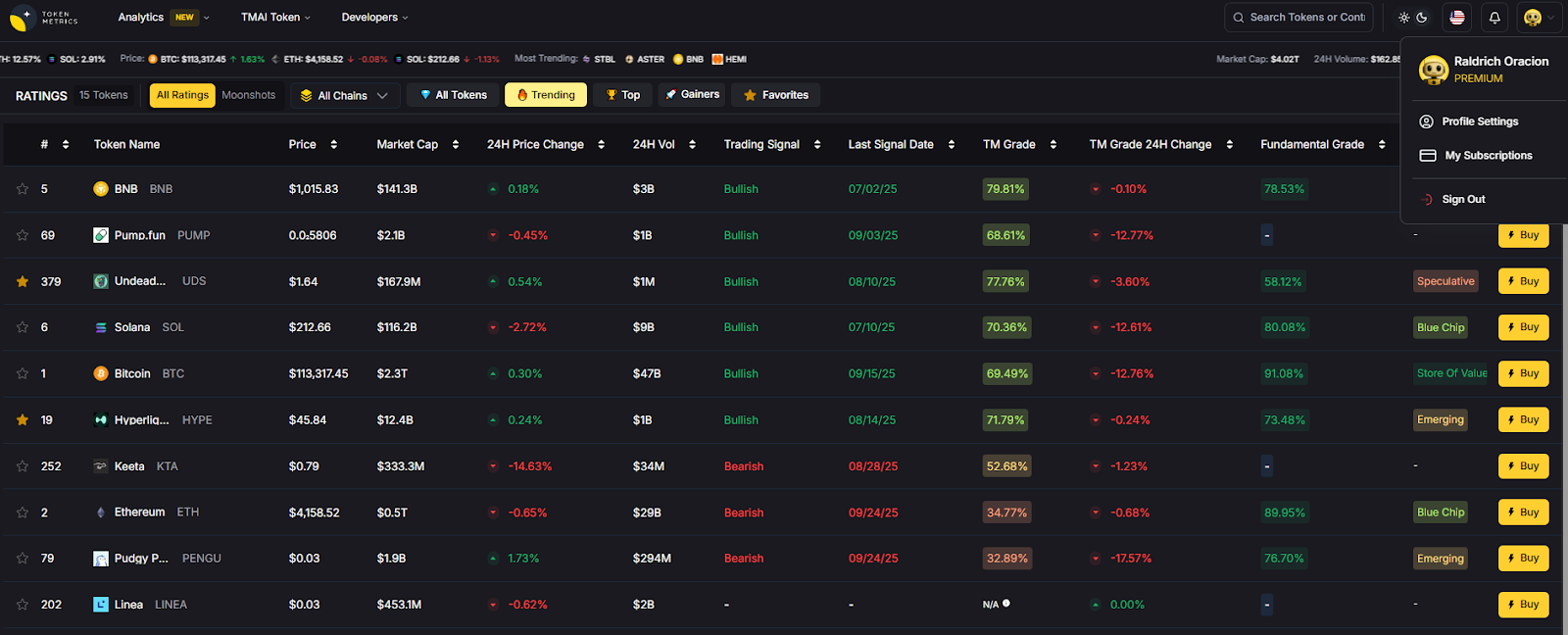
- Narrative Detection to spot early theme shifts.
- Portfolio Optimization to balance risk across chains.
- Alerts & Signals to monitor entries/exits.
Workflow: Research → Select wallet → Execute on-chain → Monitor with alerts.


Security & Compliance Tips
- Enable biometrics + 2FA (where available) and set a strong passcode.
- Back up recovery materials: seed phrase metal card, or MPC recovery kits.
- Prefer hardware signing for larger balances.
- Use transaction previews and simulation/risk checks before signing.
- Keep software updated; download only from official sites/app stores.
This article is for research/education, not financial advice.
Beginner Mistakes to Avoid
- Saving seed phrases in cloud notes/screenshots.
- Sending coins to the wrong chain or address format.
- Ignoring fee settings or slippage in swaps.
- Approving unlimited token allowances without review.
- Falling for phishing domains and fake extensions.
FAQs
What is a retail crypto wallet (mobile/web)?
A mobile/web retail wallet is software that stores your private keys and lets you sign transactions from your phone or browser. Most are self-custodial, meaning you—not an exchange—control your keys.
Is a self-custody wallet safer than keeping coins on an exchange?
Self-custody removes exchange counterparty risk. However, you must protect recovery methods (seed phrase, MPC recovery) and your device. Hardware or MPC-based options can add protection.
Which wallet is best for beginners?
For simplicity: Trust Wallet, Exodus, or ZenGo. They have straightforward onboarding, clear portfolio views, and solid docs. Advanced users might prefer MetaMask, Phantom, or OKX Wallet for deeper on-chain tooling.
What fees should I expect?
You’ll always pay network gas. Some wallets add interface/service fees on swaps/bridges (e.g., MetaMask 0.875%; Phantom 0.85% on select pairs; OKX DEX 0–0.85% depending on token groups).
Do I need hardware for mobile/web wallets?
No. Many work fine without hardware. For higher balances, pairing a mobile/web app with a hardware wallet (e.g., via Ledger Live) can reduce signing risk.
Can I use one wallet across multiple chains?
Yes—most featured wallets are multichain. Check chain lists and NFT support before migrating.
Conclusion + Related Reads
If you want maximum dapp coverage, go MetaMask; Solana-centric with great UX, pick Phantom; for exchange-adjacent simplicity, choose Base app or Crypto.com Onchain; for hardware-backed security, Ledger Live. Power users chasing routing and airdrops may prefer OKX Wallet or Bitget Wallet, while newcomers should consider Trust Wallet, Exodus, or ZenGo.

.svg)

Create Your Free Token Metrics Account

.png)




%201.svg)
%201.svg)


%201.svg)



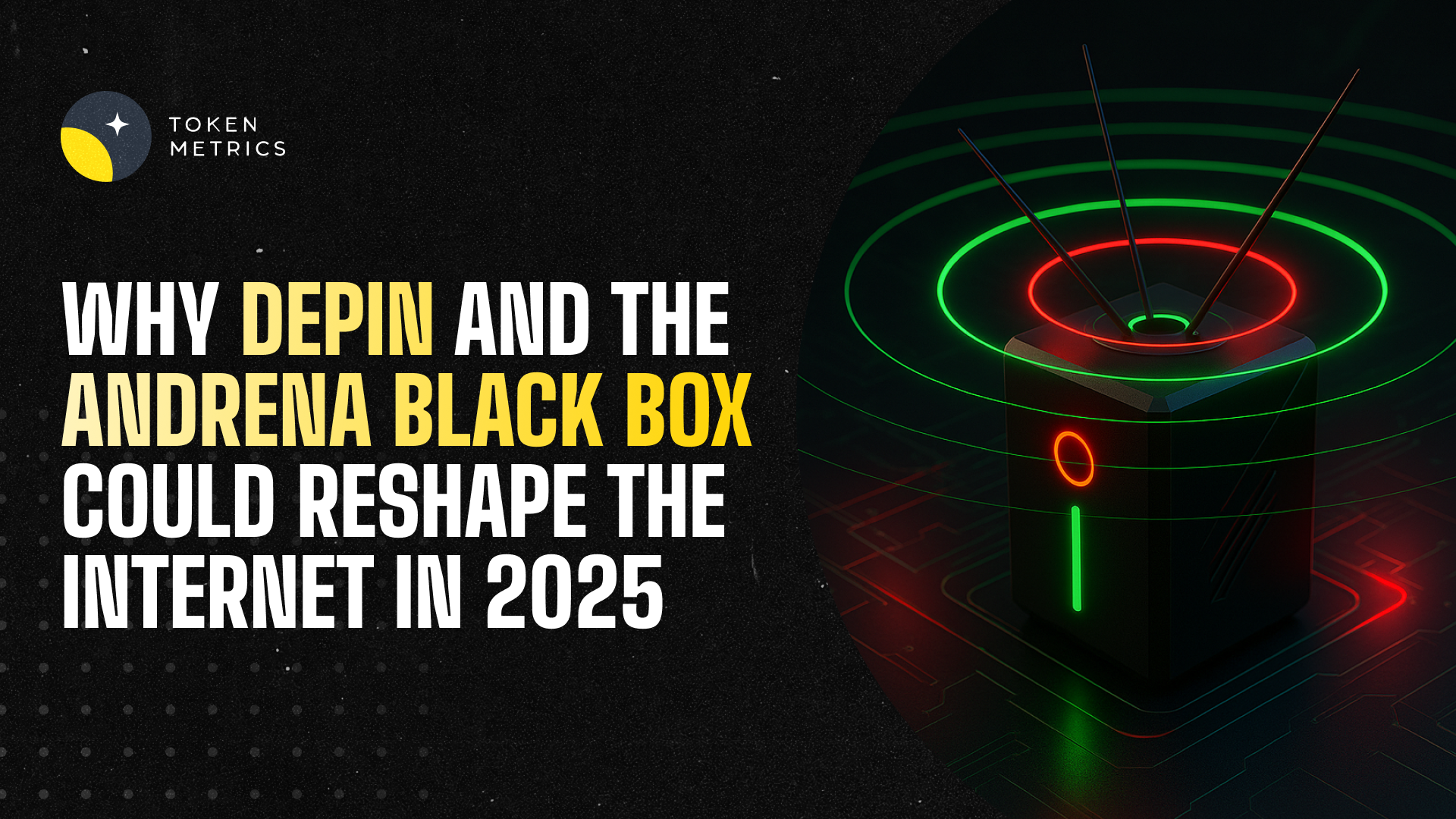







.svg)




.png)